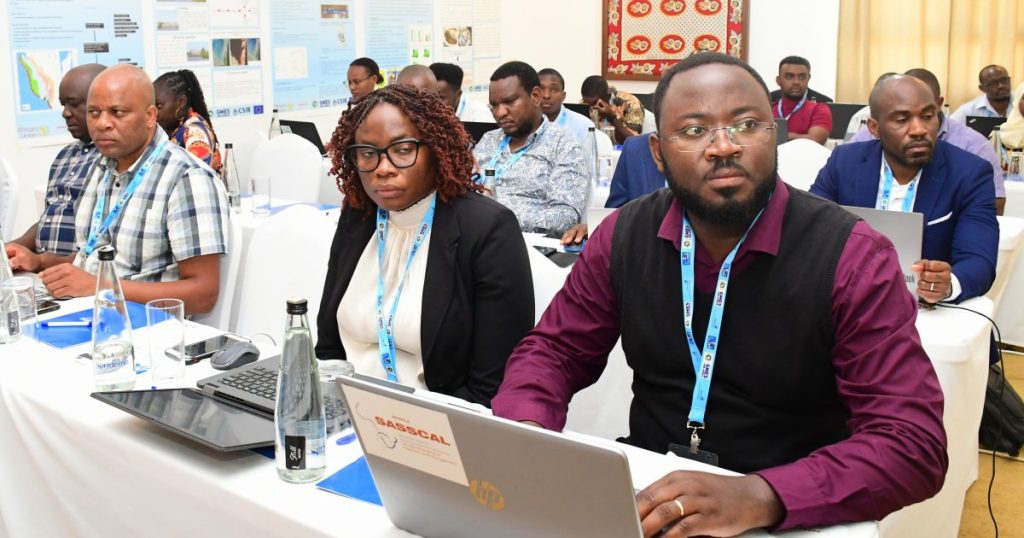Workshop in Mombasa Highlights the Role of Earth Observation in the Blue Economy
3 min read

In a significant gathering, scientists and researchers from the Global Monitoring for Environment and Security and Africa (GMES and Africa) support programme assembled in Mombasa for a three-day workshop focused on enhancing the role of earth observation satellites in advancing the Blue Economy.
Rashid Imam, Director of the Kenya Marine and Fisheries Research Institute (KMFRI) Mombasa, outlined the forum’s objectives. He emphasized the importance of discussing the sustainability of the various initiatives under the GMES and Africa Project. The workshop aimed to increase awareness about the benefits and impacts of GMES services at both national and regional levels. Additionally, it sought to foster collaboration among consortia to share experiences, knowledge, and best practices, and to bolster the use of GMES and Africa services.
Imam, who spoke on behalf of the Principal Secretary, stressed the critical role of earth observation (EO) and remote sensing technologies. These tools provide valuable data on the earth’s physical, chemical, and biological systems, which is essential for effective planning and understanding of environmental issues. Processed EO data supports numerous policy areas by offering insights necessary for developing science-based policies and strategies. These strategies are crucial for the sustainable management of coastal and marine resources, which are vital to many nations.
He also highlighted the importance of protecting biological resources through well-informed strategies. The Blue Economy sector faces a range of complex challenges, including environmental and socio-economic issues that become increasingly interconnected over time. Imam pointed out that while African nations are committed to addressing these challenges through national contributions, issues such as climate change, floods, droughts, and pollution can exacerbate poverty, food insecurity, and malnutrition among vulnerable communities.
To address these issues, Imam emphasized the need for up-to-date, integrated information on the state of the earth. He noted that the government has established a dedicated department to tackle emerging challenges in the Blue Economy sector. This department collaborates closely with the Kenya Space Agency to improve societal outcomes in Kenya and across the continent.
Kenya has also adopted and developed specific policies for space science and technology. Through these policies, the government aims to secure partnerships, enhance human and institutional capacities, and address challenges related to the Blue Economy and remote sensing. Imam highlighted that KMFRI possesses the analytical capabilities necessary to handle large datasets, converting them into actionable information for addressing various economic challenges.
KMFRI’s expertise includes real-time data generation on oceanographic parameters such as temperature, current, primary productivity, and wave height. The institute has also established a ground-receiving satellite data station, which provides fishing advisories in the form of Potential Fishing Zones (PFZ) for local fishermen.
Imam underscored the importance of collaborations and partnerships in ocean science, technology, and innovation. These collaborations facilitate knowledge sharing, skill development, and the diffusion of innovations. Kenya views these efforts as pivotal for exploring investment opportunities and advancing socio-economic development.
The workshop, themed “Enabling Sustainable Development and Inclusive Growth Using Earth Observation Technologies Towards Agenda 2063,” was co-financed by the European Commission and the African Union Commission. The event underscored the vital role of earth observation in supporting sustainable development and the Blue Economy, marking a significant step towards achieving long-term goals for the continent.
WhatsApp us